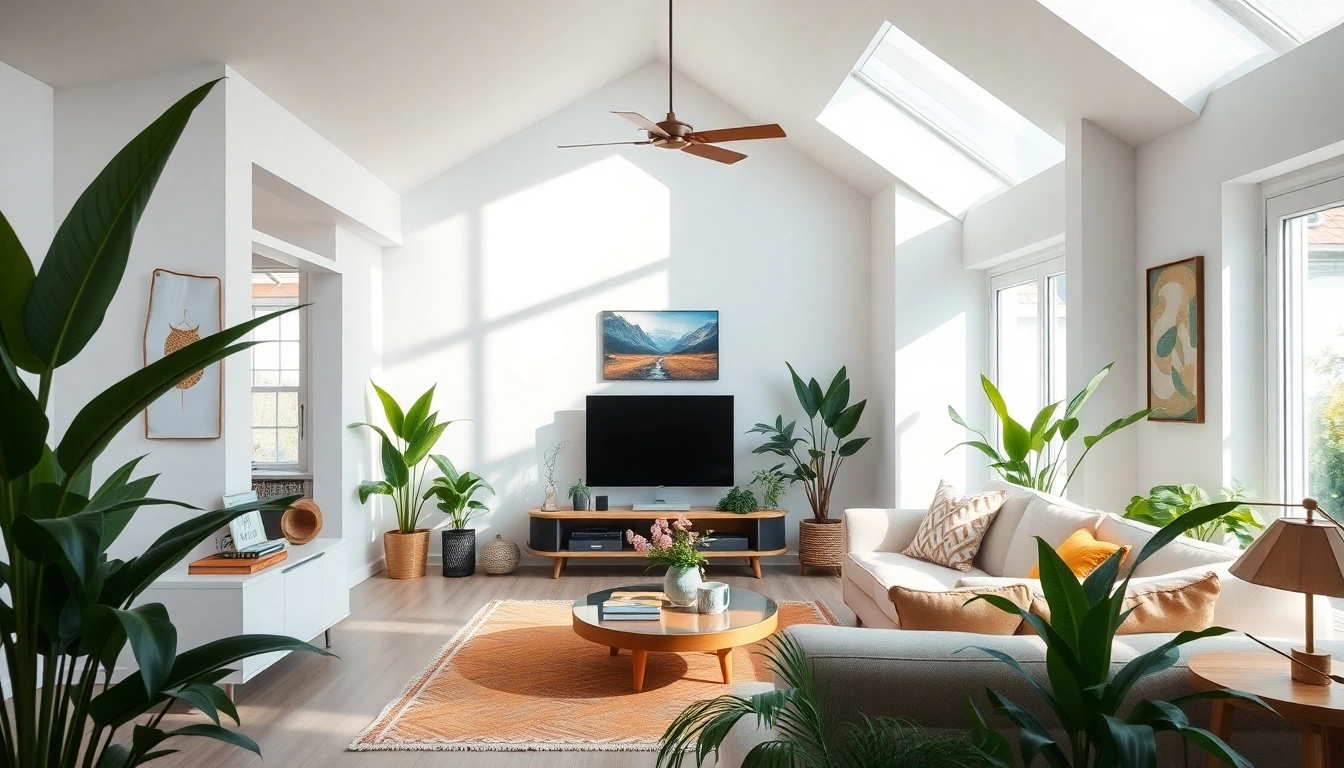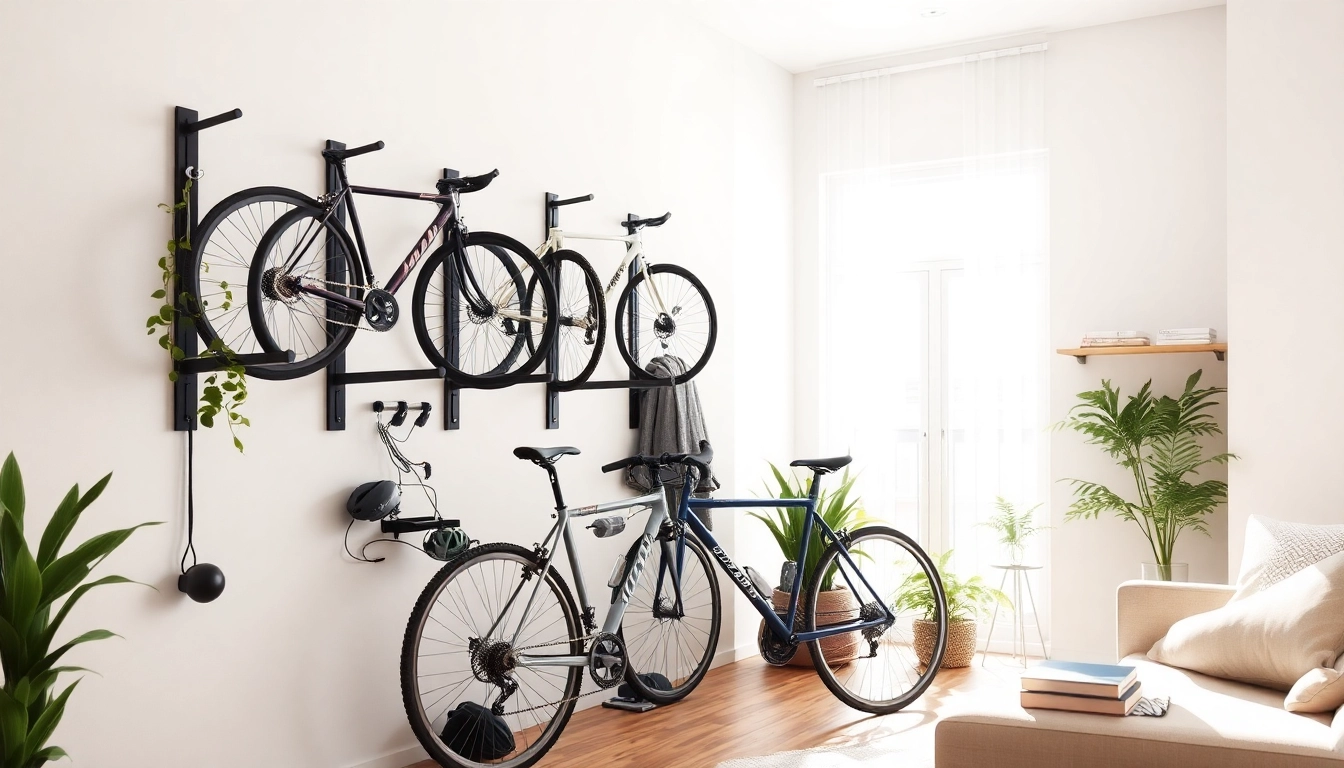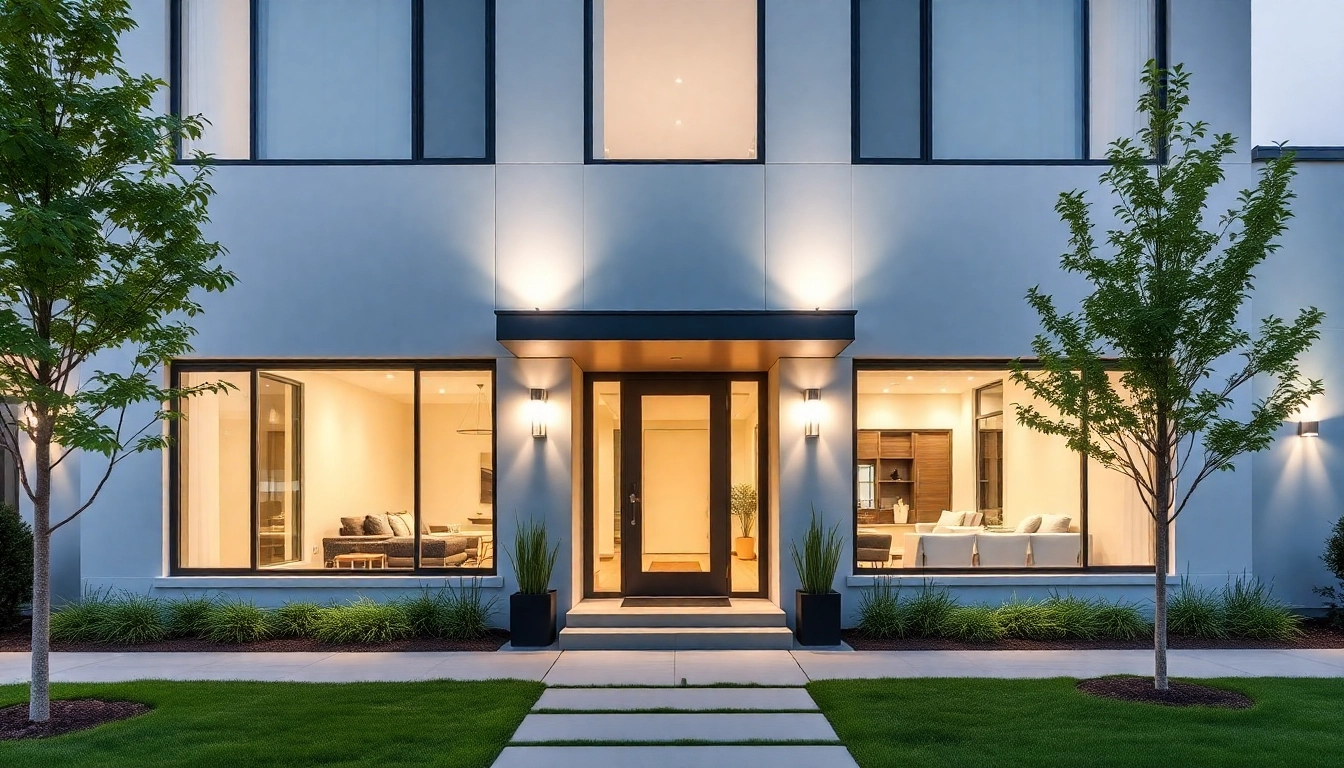Understanding Folding Partition Walls
What is a Folding Partition Wall?
A folding partition wall is a movable wall system designed to create flexible spaces in both commercial and residential environments. Unlike traditional walls, which are rigid and fixed, folding partition walls can be expanded or collapsed to adjust the size and layout of a room according to specific needs. These systems facilitate dynamic space management, allowing for quick transformation of the environment, whether you’re hosting an event, conducting meetings, or simply need a different layout for everyday activities. Made from various materials such as fabric, glass, or wood, folding partitions provide both functionality and aesthetic appeal while also optimizing the use of available space. For more information on options available, consider checking out the Folding Partition Wall offerings.
Benefits of Using Folding Partition Walls
Folding partition walls come with a myriad of benefits that enhance their attractiveness for both personal and commercial spaces:
- Space Optimization: Folding partition walls maximize the utility of a given space. For instance, in a conference center, they can transform large areas into smaller, more manageable rooms.
- Flexibility: Users can quickly change the configuration of a space without permanent alterations. This adaptability is particularly beneficial for multi-purpose venues or homes that require regular layout changes.
- Cost-Effectiveness: Investing in folding partitions can eliminate the need for expensive renovations or new building structures, making it a budget-friendly option for many establishments.
- Sound Control: Many folding partitions are designed to offer sound insulation, providing privacy and minimal distraction during meetings or social gatherings.
- Aesthetic Appeal: Depending on the chosen material and design, these walls can enhance the visual appearance of a space while aligning with the overall decor.
Common Applications in Various Spaces
Folding partition walls find their applications in a variety of settings:
- Offices: They are used to create breakout rooms, separate workspaces, or modify conference room layouts, accommodating different numbers of attendees based on need.
- Schools: In educational institutions, folding partitions enable the alteration of classrooms into larger spaces for collaborative activities.
- Event Venues: From banquet halls to exhibition centers, these walls allow event organizers to customize layouts for different functions such as weddings, trade shows, and corporate events.
- Residential Spaces: In homes, they can serve to separate rooms, create private spaces, or add a dynamic element to the living environment.
Choosing the Right Folding Partition Wall
Factors to Consider for Residential Spaces
When selecting a folding partition wall for residential use, consider the following factors:
- Space Size: Measure the area where the partition will be installed. Understanding the dimensions will guide your choice of height and width for the partition.
- Material: Different materials offer varying levels of sound insulation and aesthetics. For example, solid wood provides durability and noise reduction, while glass offers a modern look with light transmission.
- Design Style: Consider the decor of your home. Choose a folding partition that complements the existing design elements.
- Ease of Use: Ensure that the system is user-friendly for easy operation. This can include how smoothly the panels fold and how simple it is to set them up.
Commercial Use Case Scenarios
In a business environment, folding partition walls can serve multiple purposes:
- Meeting Spaces: Easily create private areas for discussions without the need for permanent walls.
- Workshops: Separate workshops or training sessions from open areas to minimize distractions.
- Retail Layouts: Retail businesses can change their layout according to promotions or product displays, allowing for flexibility in customer experience.
Comparing Materials and Designs
When it comes to folding partition walls, various materials and designs exist, including:
- Fabric: Lightweight and often used for temporary partitions, these are easy to move and can be printed with various designs.
- Glass: Ideal for maintaining an open feel while providing sound control. Glass partitions often include frame options that can tie into a building’s aesthetic.
- Wood: Provides a classic and durable choice, often found in more permanent installations due to its robust nature.
Installation Process for Folding Partition Walls
Preparing Your Space
Before installing a folding partition wall, proper preparation is crucial:
- Assessment: Evaluate the space to determine the best location for the partition and how it will function within the given area.
- Clear the Area: Remove any furniture or obstacles that may interfere with the installation process.
- Gather Tools: Ensure you have all necessary tools, such as drills, measuring tape, and fasteners, on hand for a smooth installation.
Step-by-Step Installation Guide
Follow these steps for a general installation process:
- Measure and Mark: Use a tape measure to mark where the partition will be installed.
- Attach Brackets: Secure any necessary brackets or tracks to the wall or ceiling as per the manufacturer’s instructions.
- Hang Panels: Carefully attach the folding panels to the brackets, ensuring they are level and securely in place.
- Test Movement: Open and close the partition several times to ensure smooth operation. Adjust as necessary.
- Final Touches: Add any finishing touches, such as seals or tracks, that may enhance performance and aesthetics.
Professional Installation vs. DIY
Deciding between professional installation and DIY can greatly affect the outcome:
- Professional Installation: While typically more expensive, professionals ensure that the wall is installed correctly and efficiently. This option is particularly beneficial for complex installations.
- DIY Installation: If you’re handy and on a budget, many folding partitions come with user-friendly installation guides. However, ensure that you’re comfortable with the tools and the process to avoid errors.
Maintenance and Care
Cleaning and Upkeep Tips
To maintain the quality and appearance of your folding partition walls, follow these maintenance tips:
- Regular Dusting: Use a soft cloth or vacuum to regularly remove dust and debris from the panels.
- Spot Cleaning: For fabric panels, use appropriate cleaning agents to tackle stains, while ensuring you conduct a patch test first.
- Inspect Mechanisms: Regularly check the tracks and moving parts for wear and tear, lubricating them as necessary.
Common Issues and Solutions
Even with proper care, issues may arise:
- Sticking Panels: If the panels are difficult to move, check for obstructions in the track or consider lubricating the moving parts.
- Sound Leakage: If sound travels through the partition, consider adding additional acoustic treatment or adjusting the seals.
- Visual Wear: For wood or glass units, scratches and stains may appear over time; ensure you use appropriate cleaning and repair methods.
When to Seek Professional Help
If troubleshooting these problems does not yield results, or if you encounter structural issues during installation, consider seeking professional assistance. Their expertise can provide peace of mind and assurance of quality.
Future Trends in Folding Partition Walls
Innovations in Design and Functionality
The future of folding partition walls is leaning towards innovative designs that offer greater functionality:
- Smart Technology Integration: Expect to see the incorporation of technology that allows for automated operation, making it easier to manage spaces.
- Eco-friendly Materials: Sustainable design is becoming a priority, with more manufacturers exploring biodegradable or recycled materials.
- Modular Systems: The rise of modular designs offers users even greater flexibility in rearranging layouts as needs change.
Sustainability Considerations
As environmental concerns grow, the folding partition industry will likely focus more on sustainable practices:
- Resource Conservation: Companies are exploring better methods for reducing waste during the production of partition systems.
- End-of-Life Recycling: More manufacturers will create products designed for longevity and recyclability, promoting a circular economy.
The Future of Space Management Solutions
The continued evolution of folding partition walls supports the demand for dynamic and versatile spaces. As cities become more populated and real estate becomes more expensive, maximizing the utility of available space will be crucial. Looking ahead, these innovations will allow individuals and businesses to adapt quickly, effectively responding to changing needs and enhancing overall productivity.



